About Barnabas Health Behavioral Health
Welcome to Barnabas Health Behavioral Health! Our mission is to provide high quality, compassionate care to those struggling with addiction and mental illness. We offer a wide range of services to meet the needs of our patients, including alcohol rehab, dual diagnosis treatment, opioid addiction treatment, and adult and elderly rehab. We also offer a variety of therapies, such as cognitive behavioral therapy, experiential therapy, family therapy, and group therapy. Our goal is to provide our patients with the tools they need to recover and lead healthy, happy lives. Thank you for choosing Barnabas Health Behavioral Health!
Addiction Treatment Programs
Alcohol Rehab
If you’re ready to overcome alcohol use disorder, an alcohol rehab in New Jersey can give you the tools you need. Common services include counseling and classes on coping skills, emotional management, communication, and other key life skills. Alcohol rehab programs can provide inpatient or outpatient treatment.
Dual Diagnosis
Many people with addiction issues also have a mental health diagnosis, which is known as a dual diagnosis. Be sure to find a rehab in New Jersey that can treat both. Dual diagnosis programs may offer detox, inpatient treatment, and/or outpatient care. The key is that they provide integrated treatment for both mental health symptoms and substance use.
Opioid Addiction
The goal of an alcohol rehab in New Jersey is to give you the tools and skills you need to achieve long-term recovery. Drug rehab may include detox, inpatient treatment, and/or outpatient care. You’ll learn the roots of addiction and learn how to build a substance-free life.
Adult Program
An adult program in New Jersey addresses the unique needs of adults, such as finding secure housing, building a career, and raising a family. Some of the common services will include counseling and classes on coping skills, emotional management, communication, and other key life skills. Adult programs can provide inpatient or outpatient treatment.
Senior Rehab
Offering specialized substance use treatment for those who are older, senior rehabs in New Jersey provide a safe space to work on recovery. Some of the common services will include counseling and classes on coping skills, emotional management, pain management, and other key life skills. Senior programs can provide inpatient or outpatient treatment.
Men's Rehab
Choosing a men’s rehab in New Jersey can be a great way to manage gender-specific issues while also addressing substance use. Some of the common services they include are counseling and classes on coping skills, emotional management, communication, and other key life skills. Men’s programs can provide inpatient or outpatient treatment.
Women's Rehab
If you’re a woman struggling with substance use, consider a women’s rehab program in New Jersey. Some common services include counseling and classes on coping skills, emotional management, communication, parenting, and other key life skills. Women’s programs can provide inpatient or outpatient treatment.
Young Adult Rehab
Young adult rehabs in New Jersey address a wide range of substance use issues while also helping clients transition into adulthood. Some of the common services will include counseling and classes on coping skills, emotional management, communication, and other key life skills. Young adult programs can provide inpatient or outpatient treatment.
Insurance Coverage
Medicaid
There are many ways to pay for rehab in New Jersey, including using Medicaid if you qualify. Medicaid pays for most or all of the costs of rehab, making treatment much more accessible.
Private insurance
How do you pay for rehab in New Jersey? A good option is private insurance. Different plans have different coverage levels, so be sure to check with your insurance company for details. You may be responsible for certain costs, such as copayments and deductibles.
Self-pay options
You can pay for treatment in New Jersey using your own money, which is known as self-pay or private pay. Whether you write a check, get a medical loan, or electronically transfer money, you are able to choose the rehab you most prefer. Payment arrangements may vary depending on the level of care.
Medicare
How do you pay for rehab in New Jersey? If you have Medicare, consider using it to pay for some or all of the costs of treatment. Your Medicare plan can pay for some or all of the costs of rehab, although you will want to check on the full details. You may have some out-of-pocket costs such as copays or deductibles.
Military insurance
When you’re planning to use military insurance to pay for rehab in New Jersey, there are a few details to keep in mind. Because plans vary, be sure to contact the insurer to find out what centers are in-network with your coverage and to find out what out-of-pocket costs you might be responsible for.
Levels of Care
- 1
Inpatient Rehab
There are multiple options for addiction treatment in New Jersey. During inpatient treatment, you live at the facility and are able to focus on creating a new way of life. Inpatient treatment includes multiple approaches, including cognitive behavioral therapy (CBT), motivational interviewing (MI), and holistic therapy options.
- 2
Outpatient Rehab
Attending outpatient treatment in New Jersey allows you to get evidence-based care without living in the facility, helping you establish long-term recovery. Outpatient treatment is commonly a follow-up to residential treatment and may be used to help with skill-building, education, and to practice your new habits in daily life.
- 3
Aftercare Support
Overcoming substance use is a lifelong process. Aftercare in New Jersey gives you the support you need to stay sober. It’s common for a treatment program to offer aftercare support, which may include employment training, help with housing, alumni support groups, and more.
- 4
Partial Hospitalization Program
Partial hospitalization programs (PHPs) in New Jersey allow clients to live at home or in a sober living facility while attending an intensive treatment program. Some of the elements of PHPs include individual and group counseling, skill-building, relapse prevention, group activities, and outings, and help with essentials like employment and housing.
Therapies
Cognitive Behavior Therapy
In New Jersey, cognitive behavioral therapy (CBT) helps you identify wrong thinking that can create impulsive actions. This makes it much easier to reach long-term recovery. CBT is a common part of both inpatient and outpatient substance use treatment and may be used to help with skill-building, overcoming problematic behavior, and managing substance use triggers.
Experiential Therapy
In New Jersey, experiential therapy is a holistic therapy that is widely used in addiction treatment. Experiential therapy involves a variety of activities that can make it easier to process trauma and emotions and allow you to break through some of the root issues that hold you back from recovery.
Family Therapy
Attending family therapy in New Jersey is a way to address broken relationships and dysfunction, helping you establish long-term recovery. Family therapy sessions generally last 60 to 90 minutes and may include discussing marital issues, codependency, grief, domestic violence, trauma, and other topics that impact families. The goal is to create healthier relationships that can support recovery.
Group Therapy
Attending group therapy in New Jersey is a way to overcome shame and isolation, helping you establish long-term recovery. Group therapy is a common part of both inpatient and outpatient substance use treatment, and may be used to help with skill-building, processing, and presenting educational information.
Individual Therapy
During individual therapy in New Jersey, clients work with a professional to address specific individual concerns. Individual focuses on improving both behavioral and emotional health. You may explore thought processes, develop motivation to change, and/or explore past events that may have played a part in your substance use.
Location
Contact Barnabas Health Behavioral Health
Top Drug Rehab Centers in New Jersey
-
 New Jersey
New JerseyAbsolute Awakenings Treatment Center
3000 NJ-10 Morris Plains, NJ 07950
-
 New Jersey
New JerseyRecovery Centers of America at Lighthouse
5034 Atlantic Avenue Mays Landing, New Jersey 08330
-
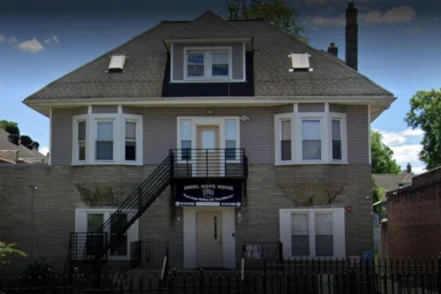 New Jersey
New JerseyAngel Hope House
800 Clinton Avenue Newark, New Jersey 07102
-
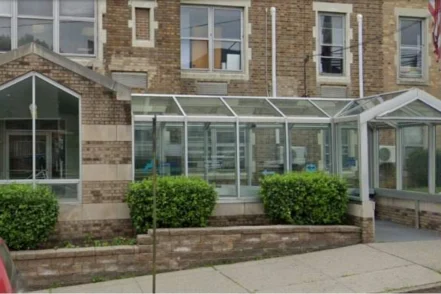 New Jersey
New JerseyEndeavor House North
206 Bergen Avenue, Suite 102 Kearny, New Jersey 07032
-
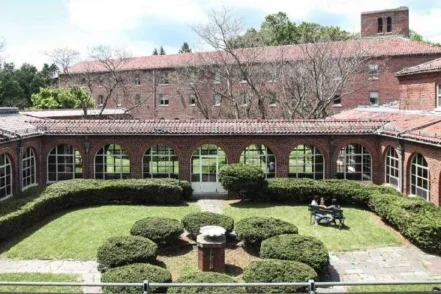 New Jersey
New JerseySunrise House Lafayette
37 Sunset Inn Road Lafayette, New Jersey 07848
-
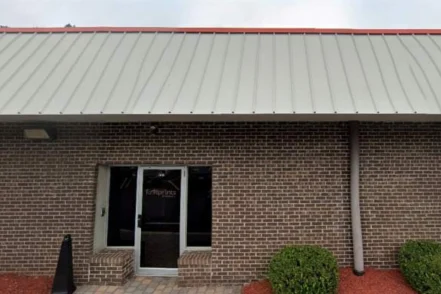 New Jersey
New JerseyFootprints to Recovery New Jersey
3535 Quakerbridge Road, Suite 300 Hamilton Township, New Jersey 08619
-
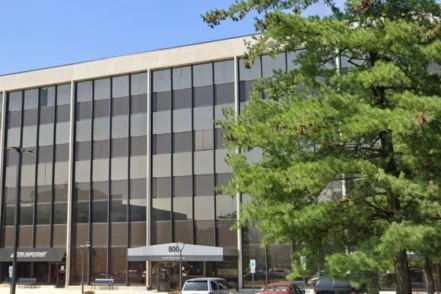 New Jersey
New JerseyLegacy Healing Center New Jersey
800 Kings Hwy N, Suite 100 Cherry Hill, New Jersey 08034
-
 New Jersey
New JerseySOBA New Jersey
104 Bayard Street New Brunswick, New Jersey 08901
-
 New Jersey
New JerseySpectrum Healthcare
74-80 Pacific Avenue Jersey City, New Jersey 07304
-
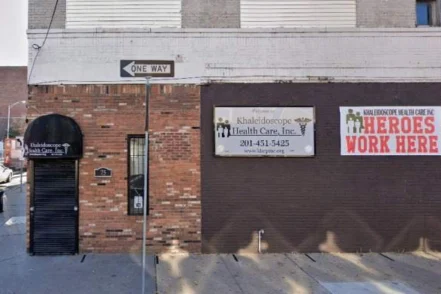 New Jersey
New JerseyKhaleidoscope Healthcare
75 Harrison Avenue Jersey City, New Jersey 07304
-
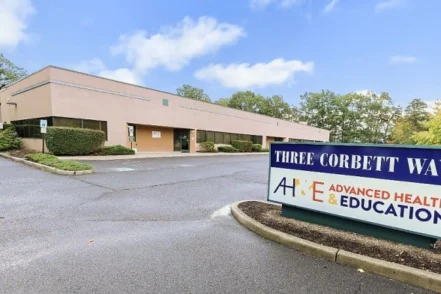 New Jersey
New JerseyAdvanced Health and Education
3 Corbett Way Eatontown, New Jersey 07724
-
 New Jersey
New JerseyRecovery Centers of America at Voorhees
526 S Burnt Mill Road Voorhees, New Jersey 08043
-
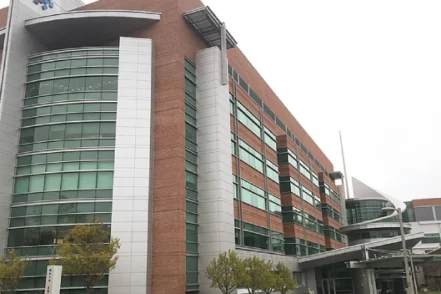 New Jersey
New JerseyJersey Shore University Medical Center Neptune
1945 State Route 33 Neptune, New Jersey 07753